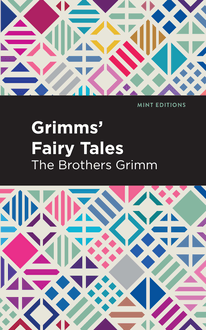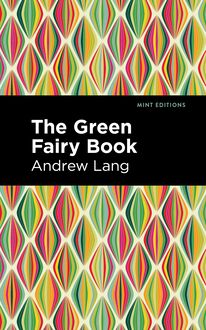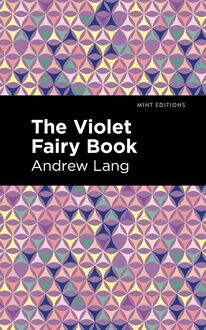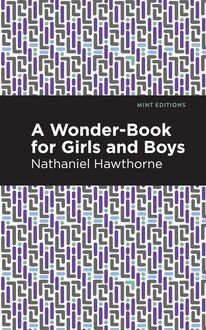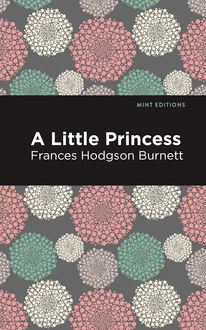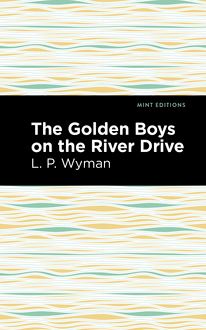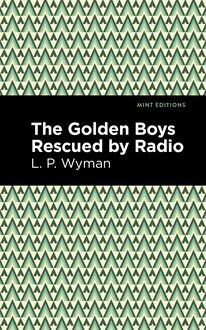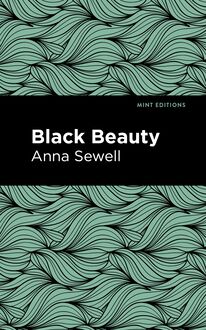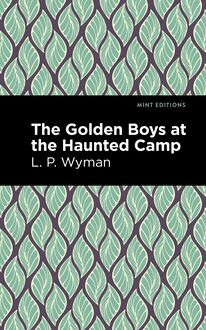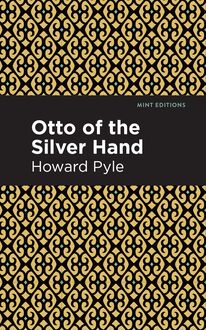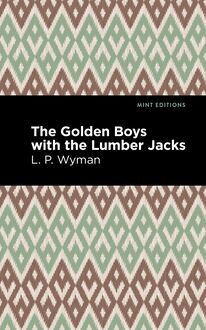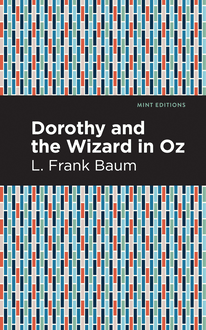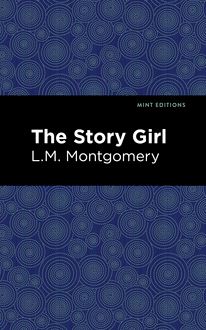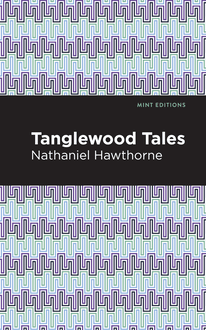-
 Univers
Univers
-
 Ebooks
Ebooks
-
 Livres audio
Livres audio
-
 Presse
Presse
-
 Podcasts
Podcasts
-
 BD
BD
-
 Documents
Documents
-
- Cours
- Révisions
- Ressources pédagogiques
- Sciences de l’éducation
- Manuels scolaires
- Langues
- Travaux de classe
- Annales de BEP
- Etudes supérieures
- Maternelle et primaire
- Fiches de lecture
- Orientation scolaire
- Méthodologie
- Corrigés de devoir
- Annales d’examens et concours
- Annales du bac
- Annales du brevet
- Rapports de stage
La lecture à portée de main
Vous pourrez modifier la taille du texte de cet ouvrage
Découvre YouScribe en t'inscrivant gratuitement
Je m'inscrisDécouvre YouScribe en t'inscrivant gratuitement
Je m'inscrisEn savoir plus
Vous pourrez modifier la taille du texte de cet ouvrage
En savoir plus

Description
Poetry is the language of the human nature, a beautiful tool to express every thought and feeling. Searching through different cultures, languages, and historical moments, Andrew Lang carefully crafted this diverse collection of poetry, translating and editing the lyrics of highly esteemed poets. Accepting only the finest of the craft, The Blue Poetry Book features some of humankind’s most magnificent poems, spanning across centuries and cultures. This diverse collection features works with rhythm, stanzas, and figurative language that remain embedded in the wit and heart of readers, immortalized as a whisper in the mind, present long after the collection’s conclusion. Comprised of over one-hundred poems, The Blue Poetry Book is a collection of poems assembled by Andrew Lang. Featuring the work of celebrated poets such as William Wordsworth, Walter Scott, William Blake, Edgar Allan Poe, Shakespeare, and more, this immense medley of poems unites legendary writers from different generations, representing their work under one language. Each poet is represented not only in their work, but in a short biography, written by the scholar Robert McWilliam, detailing their life and career. With masterful poems and intimate details of the authors’ lives, The Blue Poetry Book is both an entertaining collection and an invaluable educational resource, suitable for both children and adults. This edition of The Blue Poetry Book by Andrew Lang and Robert McWilliam now features a stunning new cover design and is printed in a font that is both modern and readable. With these accommodations, this edition of The Blue Poetry Book creates an accessible and pleasant reading experience for modern audiences while restoring the original precision and excellence of Andrew Lang’s work.
Sujets
Informations
| Publié par | Mint Editions |
| Date de parution | 08 juin 2021 |
| Nombre de lectures | 0 |
| EAN13 | 9781513286747 |
| Langue | English |
| Poids de l'ouvrage | 3 Mo |
Informations légales : prix de location à la page 0,0500€. Cette information est donnée uniquement à titre indicatif conformément à la législation en vigueur.
Extrait
The Blue Poetry Book
Andrew Lang
The Blue Poetry Book was first published in 1891.
This edition published by Mint Editions 2021.
ISBN 9781513281728 | E-ISBN 9781513286747
Published by Mint Editions®
minteditionbooks .com
Publishing Director: Jennifer Newens
Design & Production: Rachel Lopez Metzger
Project Manager: Micaela Clark
Typesetting: Westchester Publishing Service
C ONTENTS I NTRODUCTION N URSE ’ S S ONG A B OY ’ S S ONG I R EMEMBER , I R EMEMBER T HE L AMB N IGHT O N A S PANIEL C ALLED “B EAU ” K ILLING A Y OUNG B IRD B EAU ’ S R EPLY L UCY G RAY ; OR , S OLITUDE H UNTING S ONG L ORD U LLIN ’ S D AUGHTER T HE C HIMNEY -S WEEPER N ORA ’ S V OW B ALLAD OF A GINCOURT Y E M ARINERS OF E NGLAND T HE G IRL D ESCRIBES HER F AWN T HE S OLDIER ’ S D REAM J OHN G ILPIN H OHENLINDEN T HE V ILLAGE B LACKSMITH E LEGY ON THE D EATH OF A M AD D OG T HE O UTLAW B ATTLE OF THE B ALTIC Y OUNG L OCHINVAR T HE W RECK OF THE H ESPERUS T HE D OG AND THE W ATER -L ILY T O F LUSH , M Y D OG A LICE B RAND O, W ERT T HOU IN THE C AULD B LAST I L OVE M Y J EAN T HERE ’ LL N EVER B E P EACE T ILL J AMIE C OMES H AME T HE B ANKS O’ D OON A S S LOW O UR S HIP A R ED , R ED R OSE B ANNOCKBURN T HE M INSTREL - BOY T HE F AREWELL T HE H ARP THAT ONCE THROUGH T ARA ’ S H ALLS S TANZAS A S EA D IRGE R OSE A YLMER S ONG L UCY A SHTON ’ S S ONG E VENING S ONG T HE T WA C ORBIES T O O NE IN P ARADISE H YMN TO D IANA C OUNTY G UY G ATHERING S ONG OF D ONALD D HU T HE D ESTRUCTION OF S ENNACHERIB T HE C AVALIER O N F IRST L OOKING INTO C HAPMAN ’ S H OMER S ONG O DE W RITTEN IN M DCCXLVI T O D AFFODILS T HE S OLITARY R EAPER T O B LOSSOMS P ROUD M AISIE S LEEP H YMN FOR THE D EAD T HE P OPLAR F IELD W INTER A NNABEL L EE T O M ARY T WIST Y E , T WINE Y E T O L UCASTA , ON G OING TO THE W ARS T HE D EMON L OVER T HE L AWLANDS OF H OLLAND T HE V ALLEY OF U NREST T HE B URIAL OF S IR J OHN M OORE AT C ORUNNA S T . S WITHIN ’ S C HAIR S TANZAS W RITTEN ON THE R OAD B ETWEEN F LORENCE AND P ISA B ARTHRAM ’ S D IRGE T O THE C UCKOO H ELEN OF K IRKCONNEL T O A LTHEA FROM P RISON “I W ANDERED L ONELY ” H ESTER T O E VENING T HE S UN U PON THE W EIRDLAW H ILL T HE W IFE OF U SHER ’ S W ELL A LLEN - A - DALE T HE B ELEAGUERED C ITY A LEXANDER ’ S F EAST OR , THE P OWER OF M USIC T HE P ASSIONATE S HEPHERD TO HIS L OVE T HE F LOWERS O’ THE F OREST U LALUME K UBLA K HAN L’ ALLEGRO I L P ENSEROSO J OCK OF H AZELDEAN T HE R ECOLLECTION A ULD R OBIN G RAY W ILLIE D ROWNED IN Y ARROW T HE R EVERIE OF P OOR S USAN T HE A RMADA M ARY A MBREE E LIZABETH OF B OHEMIA C HERRY R IPE M ORNING D EATH THE L EVELLER A NNAN W ATER T O A W ATERFOWL S O , W E ’ LL GO NO M ORE A R OVING S ONG T HE L AND O’ T HE L EAL S ONG OF THE E MIGRANTS IN B ERMUDA T HE L IGHT OF O THER D AYS T HE F IRE OF D RIFT - WOOD T HE W AR - SONG OF D INAS V AWR A RETHUSA T HE D AY IS D ONE S ONG T HE T WO A PRIL M ORNINGS T O H ELEN T HE S KYLARK F IDELE C UMNOR H ALL T O A S KYLARK T HE N IGHTINGALE T HE S LEEPER S PRING T HE B ATTLE OF N ASEBY R OSABELLE T HE R IME OF THE A NCIENT M ARINER T HE H AUNTED P ALACE T HE B ARD S ONG K INMONT W ILLIE T HE L AST M AN I VRY S IR P ATRICK S PENS L A B ELLE D AME S ANS M ERCY T HE C HILD AND THE S NAKE T OM B OWLING T HE K ITTEN AND F ALLING L EAVES T HE P ILGRIM T HE S OLITUDE OF A LEXANDER S ELKIRK T HE E VE OF S T . J OHN L EADER H AUGHS E PITAPH ON A H ARE B ATTLE OF O TTERBOURNE L YCIDAS E LEGY W RITTEN IN A C OUNTRY C HURCHYARD O N THE M ORNING OF C HRIST ’ S N ATIVITY W INTER C HRISTABEL Y ARROW U NVISITED Y ARROW V ISITED S IR H UGH ; OR , THE J EW ’ S D AUGHTER A L YKE - WAKE D IRGE T HE R ED F ISHERMAN ; OR , THE D EVIL ’ S D ECOY B OADICEA O N THE D EPARTURE OF S IR W ALTER S COTT FROM A BBOTSFORD FOR N APLES [1831]
I NTRODUCTION
T he purpose of this Collection is to put before children, and young people, poems which are good in themselves, and especially fitted to live, as Theocritus says, “on the lips of the young.” The Editor has been guided to a great extent, in making his choice, by recollections of what particularly pleased himself in youth. As a rule, the beginner in poetry likes what is called “objective” art—verse with a story in it, the more vigorous the story the better. The old ballads satisfy this taste, and the Editor would gladly have added more of them, but for two reasons. First, there are parents who would see harm, where children see none, in “Tamlane” and “Clerk Saunders.” Next, there was reason to dread that the volume might become entirely too Scottish. It is certainly a curious thing that, in Mr. Palgrave’s Golden Treasury , where some seventy poets are represented, scarcely more than a tenth of the number were born north of Tweed. In this book, however, intended for lads and lassies, the poems by Campbell, by Sir Walter Scott, by Burns, by the Scottish song-writers, and the Scottish minstrels of the ballad, are in an unexpectedly large proportion to the poems by English authors. The Editor believes that this predominance of Northern verse is not due to any exorbitant local patriotism of his own. The singers of the North, for some reason or other, do excel in poems of action and of adventure, or to him they seem to excel. He is acquainted with no modern ballad by a Southern Englishman, setting aside “Christabel” and the “Ancient Mariner—” poems hardly to be called ballads—which equals “The Eve of St. John.” For spirit-stirring martial strains few Englishmen since Drayton have been rivals of Campbell, of Scott, of Burns, of Hogg with his song of “Donald McDonald.” Two names, indeed, might be mentioned here: the names of the late Sir Francis Doyle and of Lord Tennyson. But the scheme of this book excludes a choice from contemporary poets. It is not necessary to dwell on the reasons for this decision. But the Editor believes that some anthologist of the future will find in the poetry of living English authors, or of English authors recently dead, a very considerable garden of that kind of verse which is good both for young and old. To think for a moment of this abundance is to conceive more highly of Victorian poetry. There must still, after all, be youth and mettle in the nation which could produce “The Ballad of the Revenge,” “Lucknow,” “The Red Thread of Honour,” “The Loss of the Birkenhead,” “The Forsaken Merman,” “How they brought the Good News from Ghent to Aix,” “The Pied Piper of Hamelin,” and many a song of Charles Kingley’s, not to mention here the work of still later authors. But we only glean the fields of men long dead.
For this reason, then—namely, because certain admirable contemporary poems, like “Lucknow” and “The Red Thread of Honour,” are unavoidably excluded—the poems of action, of war, of adventure, chance to be mainly from Scottish hands. Thus Campbell and Scott may seem to hold a pre-eminence which would not have been so marked had the works of living poets, or of poets recently dead, been available. Yet in any circumstances these authors must have occupied a great deal of the field: Campbell for the vigour which the unfriendly Leyden had to recognise; Scott for that Homeric quality which, since Homer, no man has displayed in the same degree. Extracts from his long poems do not come within the scope of this selection. But, estimated even by his lyrics, Scott seems, to the Editor, to justify his right, now occasionally disdained, to rank among the great poets of his country. He has music, speed, and gaiety, as in “The Hunting Song” or in “Nora’s Vow:”
For all the gold, for all the gear,
For all the lands both far and near
That ever valour lost or won,
I would not wed the Earlie’s son!
Lines like these sing themselves naturally in a child’s memory, while there is a woodland freshness and a daring note in
O, Brignall banks are wild and fair,
And Greta woods are green.
“Young Lochinvar” goes “asas dauntingly as wantonly” to his bridal, as the heir of Macpherson’s Rant to his death, in a wonderful swing and gallop of verse; while still, out of dim years of childhood far away, one hears how all the bells are ringing in Dunfermline town for the wedding of Alice Brand. From childhood, too, one remembers the quietism of Lucy Ashton’s song, and the monotone of the measure—
Vacant heart and hand and eye,
Easy live and quiet die.
The wisdom of it is as perceptible to a child as that other lesson of Scott’s, which rings like a clarion:
To all the sensual world proclaim
One glorious hour of crowded life
Is worth an age without a name.
Then there are his martial pieces, as the “Gathering Song of Donald Dhu” and “The Cavalier,” and there is the inimitable simplicity and sadness of “Proud Maisie,” like the dirge for Clearista by Meleager, but with a deeper tone, a stronger magic; and there is the song, which the Fates might sing in a Greek chorus, the song which Meg Merrilies sang,
Twist ye, twine ye, even so!
These are but a few examples of Scott’s variety, his spontaneity, his hardly conscious mastery of his art. Like Phemius of Ithaca, he might say “none has taught me but myself, and the God has put into my heart all manner of lays”—all but the conscious and elaborate “manner of lays,” which has now such power over some young critics that they talk of Scott’s redeeming his bad verse by his good novels. The taste of childhood and of maturity is simpler and more pure.
In the development of a love of poetry it is probable that simple, natural, and adventurous poetry like Scott’s comes first, and that it is followed later—followed but not superseded—by admiration of such reflective poetry as is plain and even obvious, like that of Longfellow, from whom a number of examples are given. But, to the Editor at least, it seems that a child who cares for poetry is hardly ever too young to delight in mere beauty of words, in the music of metre and rhyme, even when the meaning is perhaps still obscure and little considered. A child, one is convinced, would
-
 Univers
Univers
-
 Ebooks
Ebooks
-
 Livres audio
Livres audio
-
 Presse
Presse
-
 Podcasts
Podcasts
-
 BD
BD
-
 Documents
Documents
-
Jeunesse
-
Littérature
-
Ressources professionnelles
-
Santé et bien-être
-
Savoirs
-
Education
-
Loisirs et hobbies
-
Art, musique et cinéma
-
Actualité et débat de société
-
Jeunesse
-
Littérature
-
Ressources professionnelles
-
Santé et bien-être
-
Savoirs
-
Education
-
Loisirs et hobbies
-
Art, musique et cinéma
-
Actualité et débat de société
-
Actualités
-
Lifestyle
-
Presse jeunesse
-
Presse professionnelle
-
Pratique
-
Presse sportive
-
Presse internationale
-
Culture & Médias
-
Action et Aventures
-
Science-fiction et Fantasy
-
Société
-
Jeunesse
-
Littérature
-
Ressources professionnelles
-
Santé et bien-être
-
Savoirs
-
Education
-
Loisirs et hobbies
-
Art, musique et cinéma
-
Actualité et débat de société
- Cours
- Révisions
- Ressources pédagogiques
- Sciences de l’éducation
- Manuels scolaires
- Langues
- Travaux de classe
- Annales de BEP
- Etudes supérieures
- Maternelle et primaire
- Fiches de lecture
- Orientation scolaire
- Méthodologie
- Corrigés de devoir
- Annales d’examens et concours
- Annales du bac
- Annales du brevet
- Rapports de stage
